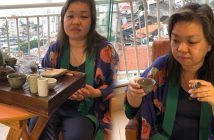The next steps are an in-person seminar and put into practice a partnership with an International Funding Agency to disseminate good practices in national tea production
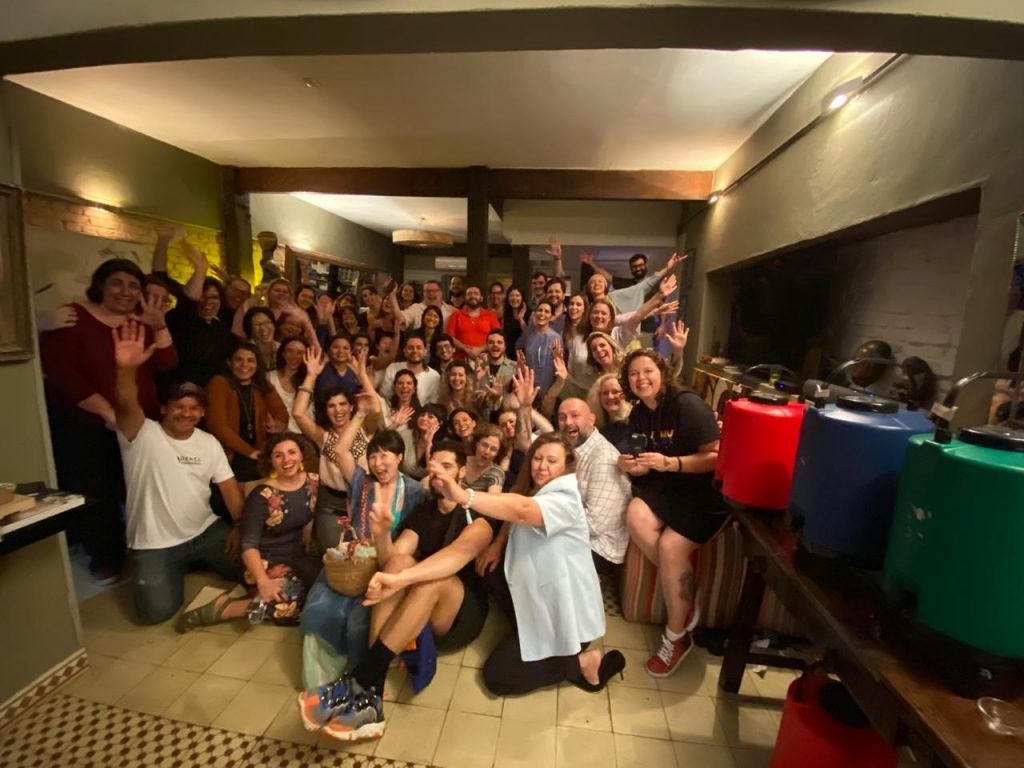
AbChá president, economist Caio Barbosa, co-owner of Chá Yê, (read piece here) expert in Chinese specialty teas, gave an exclusive interview to Grão Especial, where he summarizes his management, to be concluded by the end of July, and tells us about the advances in tea consumption in the country, particularly during the pandemic.
Interview with Caio Barbosa – AbChá:
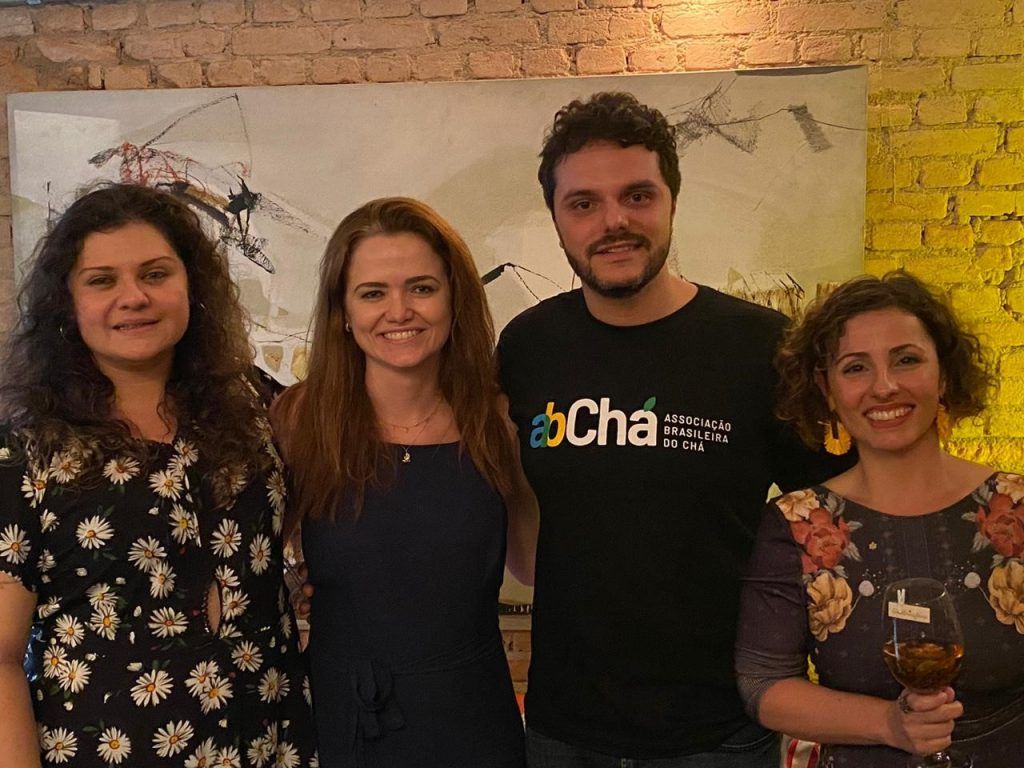
Grão Especial – It’s been two years since you assumed the management of AbChá, practically the same period as that of the pandemic. How did you manage to “survive” in such a turbulent period, working for such a new organism?
AbChá – Look, I can tell you that it wasn’t easy. We had personal challenges, involving survival, and the challenges of the association, which was practically created few months before the first wave of coronavirus. But we survived, with difficulties, of course, like anyone else.
Grão Especial – How is AbChá operating?
AbChá – The first meeting occurred two years ago, exactly. At first, we spent four to five months structuring the association, creating rule, the bureaucratic stuff. Some AbChá activities started in August 2019, for example, the creation of the Education and Research group. Since we still didn’t have CNPJ, we could not collect the contributions of the associates and, without cash, it’s hard to put anything into practice. We had to be creative.
The solution we found was to engage the market professional with two working groups: Education and Research, and Brazilian teas. They both produced several materials, wrote about themes connected to tea, recorded classrooms, made interviews. The good side is that, as everything occurred online, we have all these materials recorded and is available to our new associates. We also invited some other associations like ABS (Brazilian Sommelier Association) and ABKom (Brazilian Kombucha Association) for them to understand our proposal and how we could create synergy.

Grão Especial – Did the pandemic prevent any action that you have planned?
AbChá – Yes. We wanted to promote an annual seminar, which I consider extremely important for the tea market to gain force in Brazil. After all, these events, and I have already participated in several across the world, are absolutely necessary to promote the meeting of professionals, their products, to get to know the people that are exporting teas, those that are producing in the country, etc. The pandemic was a big setback, but I think it is worth emphasizing that AbChá survived, we are growing, and the working groups keep on producing materials. It’s also important to emphasize that the working groups, in my opinion, are more important than the management that is administering AbChá. Continuity is a very important business.
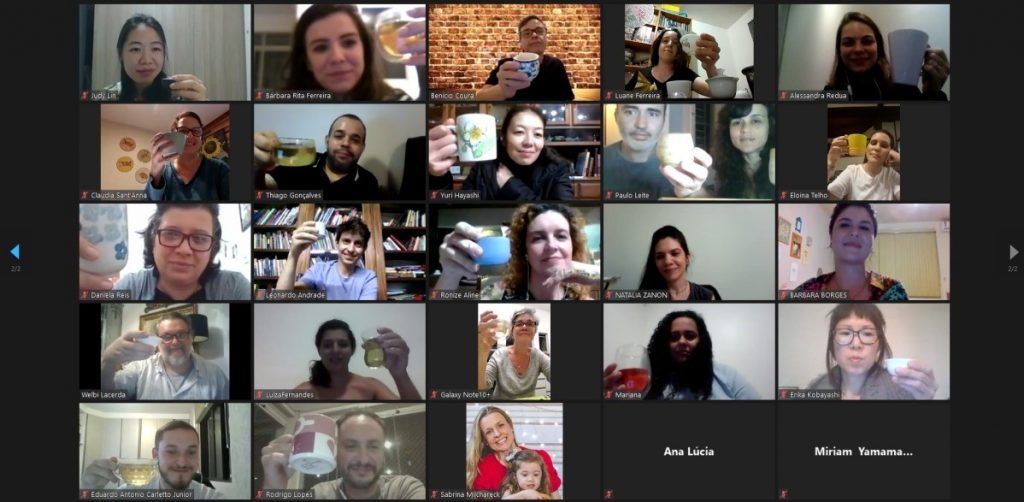
Grão Especial – What was the theme for the Brazilian Teas Study Group?
AbChá– This group, by means of an associate, Claudia Santana, came to me with a very good idea that was to promote approximation of AbChá with a funding agency linked to the Ministry of Foreign Affairs. At the beginning of conversations, the proposal was a partnership with Malawi, in East Africa, large tea producers. Then it evolved to a proposal of technical cooperation with the United Kingdom.
Grão Especial – Why United Kingdom?
AbChá – Because, according to the Brazilian funding agency linked to the Ministry of Foreign Affairs, the United Kingdom has a strong history of technical cooperation. Several of its former colonies are today large producers of tea, as the case of India that many people think that it produces tea for a long time, like the Chinese, but it’s not true. Indian production is relatively new, when compared to that of the Chinese. South Africa, for example, which is also a former English colony, is, today, a large producer of teas, the largest producer of Rooibos, for example, thanks to the English fomentation. They introduced the culture of camellia sinensis (tea plant) in practically all its former colonies.
Grão Especial – And, at first, how will this partnership work?
AbChá – Well, we are still coping with the bureaucracy of the bodies’ procedures, we produced an official letter for the agency to include us among entities that help settle this cooperation. They have already accepted us, and now they will introduce us to international entities that want to contribute to tea fomentation in the country. We are still waiting.
Grão Especial – But what is the type of partnership you are looking for?
AbChá – At first it will be a public partnership with government bodies, basically turned to the production of teas in Brazil. We must import this expertise to promote and increase the quality of new Brazilian teas, the tea we are producing now, so that we can, in the future, once again export high quality teas, promote Brazilian teas in international contests, etc. In the future, nothing will prevent changes in this scope, or the participation of private groups, who knows, maybe building a processing mill at Vale do Ribeira, for example.
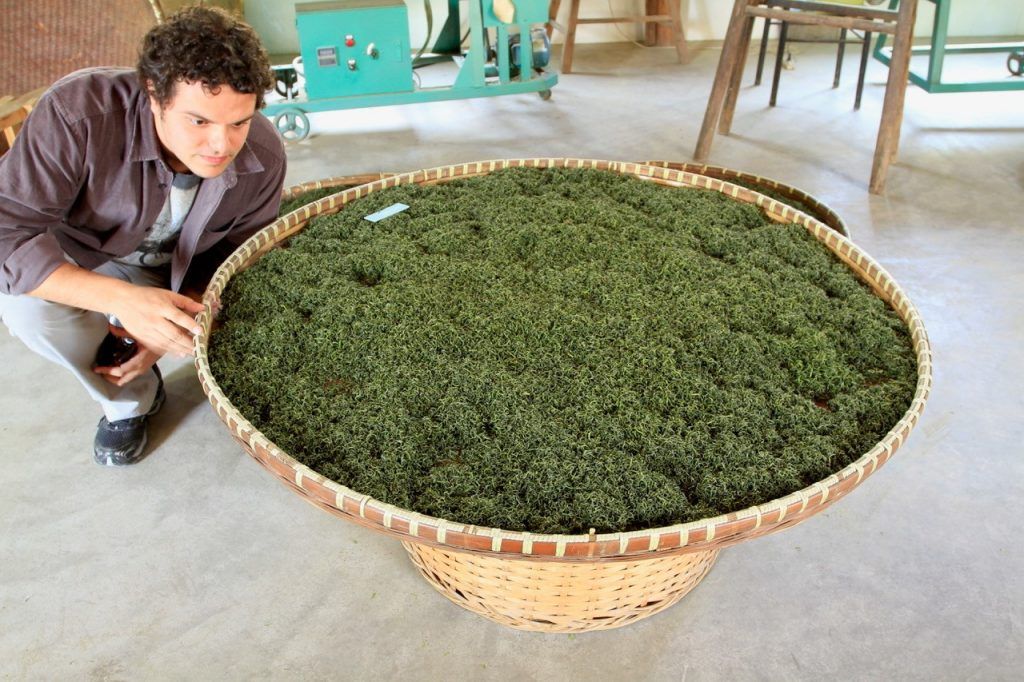
Grão Especial – This is a very interesting possibility, isn’t it?
AbChá – Certainly! We need something like that to promote the market growth. We are currently working like little ants. But an initiative like that is a kind of starter. Establishing this type of partnership is injecting real cash in the market, taking advantage of international professionals’ expertise and know-how. We are very excited.
Grão Especial – Brazilian tea production was once very important, right?
AbChá – Yes, very much! Our tea had its peak; its production was large here. By the end of the 80s, early 90s, Brazil exported tons of tea. But it never had an important domestic market, as is the case of coffee. So, when the economic plans came, Plano Real, mainly, the Brazilian tea became too expensive and was replaced by teas from Sri Lanka or China. As there was no internal tea market, the producers bankrupted and left behind millions of camellia sinensis plants abandoned in farms. These plants were and still are being cut to plant corn, sugarcane, and banana, as occurs in the interior of São Paulo state.
As tea culture is experiencing a resurgence in Brazil, with significant increase in domestic consumption, in the number of consumers that appreciate quality tea, I think about what would happen in an ideal scenario, with scientific research entities like Embrapa, which makes a very good work with other cultures, researching tea, the different Brazilian terroirs, the best species, micro-regions, we could plant camellia sinensis in Cerrado, Atlantic Forest, under agroforestry system, along with palm heart and other cultures.
Grão Especial – Yes, and you that often travel to China to visit tea plantations know that…
AbChá – Surely. In China, when you travel from one region to another to visit tea plantations, you notice that in a dense forest, humid, near Yuham, they use cultivars that grow and develop very well. And if you visit other regions that even snow, we also find different cultivars that produce wonderful teas, very appreciated worldwide.
Grão Especial – Even the IAC (Campinas Agronomic Institute) have already researched the camellia sinensis, haven’t it?
AbChá – Yes, in Vale da Ribeira. There is a portion of cultivars that were brought by the Japanese. But another large portion was developed by IAC in the 90s. And the result was marvelous. Remember that there we are at a very low altitude, differently from Chinese or Japanese teas. The plant is super resistant, resilient.
Grão Especial – The first time we talked, you said that one of the main missions of the entity would be to obtain market, production and consumption data. Did you manage to advance in this initiative?
AbChá – Yes, we advanced chiefly in the collection of these data, but they were not appropriately processed so far. Macroeconomic information makes more sense when the data are more comprehensive. We still have to understand whether we can expand that further and treat these data to transform them in reports to associates.
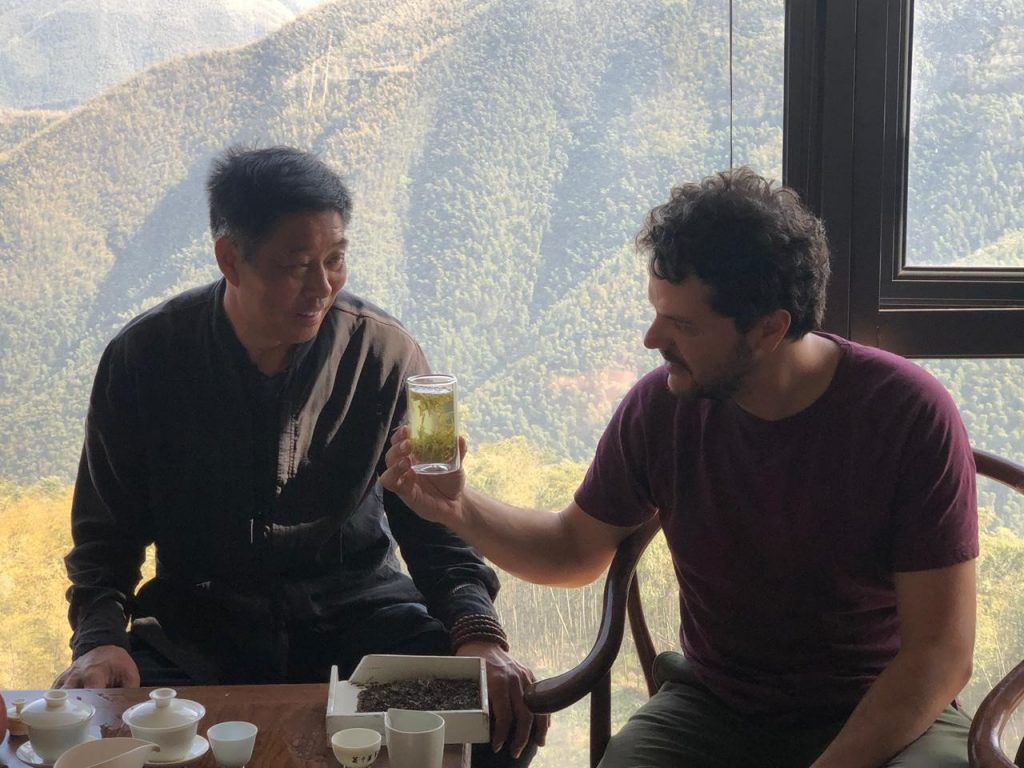
Grão Especial – What is the AbChá associate profile?
AbChá – Most people that approximated the Association is very involved with specialty teas, they are great appreciators and are also teachers with formal or informal school. And these associates, in their turn, have already formed thousands of tea lovers that attended courses to better understand the beverage flavors complexity, or to learn tea processing techniques, sommelier trainings. They are increasingly more interested in specialty teas and are tea propagators. And that’s how the market matures!
Grão Especial – From your point of view, what would be the direction of the Association for the next term of office?
AbChá – In my view, the idea is to continue the work of these two Working Groups (Education and Research, and Brazilian Teas) because they are fundamental for the next biennium. And, after the pandemic, the promotion of an in-person Seminar. I will recommend the creation of another working group to process and compile the data from research, and then present them to the general public. I, as associate company, would perceive the added value, in case we managed to organize newsletters, data, and curiosities about the tea market. We also want to include two other positions – institutional relations coordinator and communications coordinator – in the fiscal board that today comprises president, vice-president, first secretary and treasurer.


